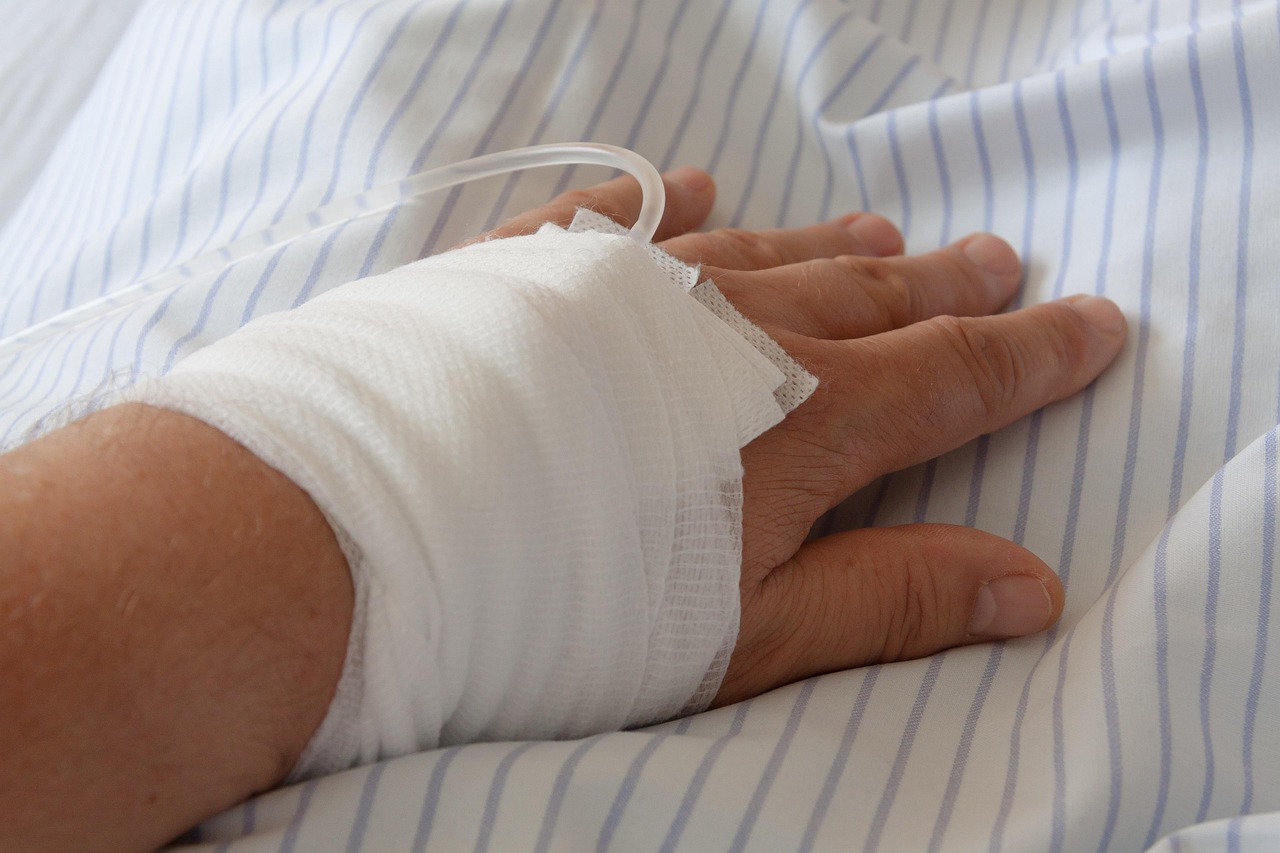03
Oct 2024
IV fluid shortage prolongs hospital stays, with doctors saying they're 'in the dark'
Published in General on October 03, 2024

Health Minister Mark Butler has swiftly assembled a task force to address the shortages. Patients are staying longer in hospital care units after surgery due to a global shortage of IV fluids, forcing doctors to ration supplies.
An internal email from a major Sydney hospital, obtained by the ABC, revealed that some patients received "little or no" IV fluid during surgery, resulting in extended recovery stays due to hypotension and dehydration.
Doctors warn that the critical shortage could impact elective surgeries, and they feel "left in the dark" about the true scale of the problem.
Pressure is mounting on federal health authorities to secure the supply of these lifesaving fluids, which are vital for treating conditions like sepsis and dehydration and supporting post-operative care.
David Story, president of the Australian and New Zealand College of Anaesthetists (ANZCA), criticized health authorities for providing "inadequate information" on the shortage and future expectations. "We're being left in the dark about the fluid situation across the country," he said.
“There needs to be much greater transparency at both the state and hospital levels, along with honest discussions about whether elective surgeries should be halted if necessary,” said David Story.
Last month, an internal email from a NSW health district advised doctors to implement "conservation strategies" to manage the shortage. These measures include reserving certain fluids for resuscitation, intensive care, and surgery, minimizing fasting for surgical patients to reduce fluid replacement needs, and prioritizing oral fluids whenever possible.
NSW Health Minister Ryan Park acknowledged the challenge, noting that recent stock deliveries have helped, but the shortage continues to affect the entire health system. "I'm not hiding the challenge; this is tough going, but we have controls in place," Park stated. He emphasized that adjustments are made through a "clinically appropriate lens" to ensure patient safety. While no surgeries have been cancelled yet, the issue remains a "significant challenge."
Australian Medical Association (AMA) president Steve Robson echoed these concerns, saying the shortage is directly impacting his work. "In my surgical list this morning, we had major problems sourcing appropriate intravenous fluids. This is happening across hospitals and clinics nationwide," he said.
Steve Robson, president of the Australian Medical Association (AMA), warned that elective surgeries could be impacted, stating, "Some surgeries use an enormous amount of intravenous fluids. If these supplies can't be guaranteed — within days in some settings — we may have to cancel planned surgeries."
Speaking anonymously, a senior clinician at a major Sydney hospital expressed frustration over the shortages. "Many cases that would normally receive fluids are not getting them, and we're having to ration," he said. He also emphasized that restricting fluid use, particularly for procedures like abdominal surgery, could lead to complications such as renal failure and infections. "It's critical that we can use fluids judiciously based on the patient's clinical needs," he added.
Despite the concerns, the federal government has not been notified of any disruptions to surgical activities.
Former deputy chief medical officer and Australian Patients Association (APA) ambassador Nick Coatsworth criticized the lack of a clear plan to address the shortage. He questioned why Australian manufacturers haven't stepped in to help. "A lot of people are wondering why it's so difficult to produce saline — and I am too," Coatsworth said. "It's one of the more straightforward things to make."
In response to the shortage, the Therapeutic Goods Administration (TGA) has temporarily approved alternative saline brands from overseas. However, global demand and manufacturing constraints continue to fuel the shortfall.
Health Minister Mark Butler has convened an urgent response group, including representatives from states, territories, and various health stakeholders, to address the IV fluid shortage.
"The TGA has approved several alternative supplies from overseas to supplement local production, which is helping us manage this period of higher demand," Butler said. He assured the public that the government works closely with states, territories, and private hospitals to minimize any potential impact on patient care.
Shadow Health Minister Anne Ruston criticized the government for its delayed response to the IV fluid shortage.
"What is the government doing? We've known for over a month about the shortage, and it took the minister until Friday to form a monitoring group," Ruston said. "We need action, not just a monitoring group. We must secure a supply of this important emergency product for our healthcare system."
Amid the ongoing IV fluid shortage and its impact on hospital operations, patients and their families may also face extended hospital stays or delays in elective surgeries. For those needing hospital stay accommodation near Sydney, there are numerous serviced apartments and short-term accommodation options available close to major healthcare facilities like St. Vincent’s and Royal Prince Alfred Hospital. These accommodations provide convenient, fully furnished solutions for long or short-term stays, offering comfort and proximity during extended recovery periods.
This is particularly important as the healthcare system continues to grapple with the challenges caused by the global shortage. Finding suitable nearby accommodation can alleviate the stress for patients and their families.









